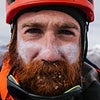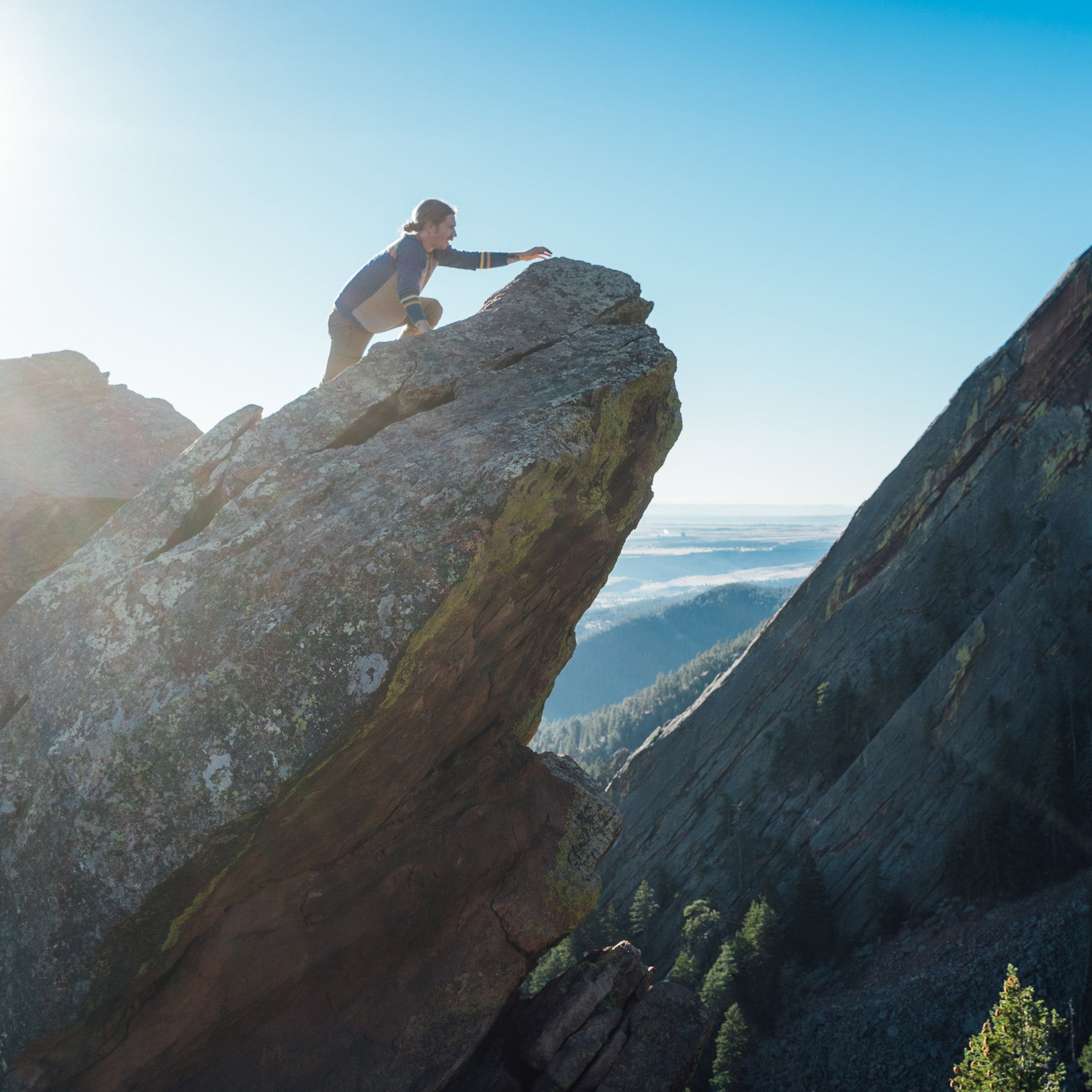Why do people put up with Boulder, Colorado’s inflated prices and snooty reputation? Access. You won’t find another town in the United States with so much at its doorstep. That access is why I packed up my old Pathfinder and moved to the area from Los Angeles. Where getting to the mountains used to involve sitting in traffic for nearly half a day, every time, now I can see climbing routes from my bedroom window.
IndefinitelyWild
 IndefinitelyWild is a lifestyle column telling the story of adventure travel in the outdoors, the vehicles and gear that get us there, and the people we meet along the way. Get the newsletter! And follow us on , , and .
IndefinitelyWild is a lifestyle column telling the story of adventure travel in the outdoors, the vehicles and gear that get us there, and the people we meet along the way. Get the newsletter! And follow us on , , and .One of the first friends I made here is Zach Lovell, a mountain guide for the American Alpine Institute’s . These are the routes he’s shown me.
First Flatiron: Baker’s Way/Direct East Face
Difficulty: 5.6R
Length: Ten pitches
Time: Three hours
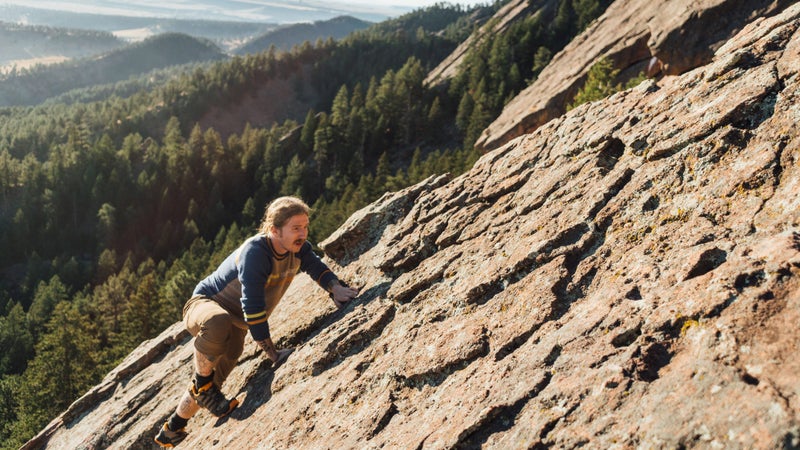
Chances are you’ve heard of the famous range that towers more than 1,000 feet above the city. And for good reason: its massive granite slabs (identified as the First, Second, and Third) offer dozens of classic, high-quality routes, ranging from easy (Second Flatiron, , 5.0) to moderate (Third Flatiron, , 5.10b). The best things about the Flatirons are that they’re just a five-minute drive from downtown and the approach hikes are short (the longest takes only 45 minutes). That also means parking at Chautauqua Park can fill up. Ride a bicycle if you can or look for street parking nearby.
Lovell and I climbed , stringing together two variations of classic routes on the First. This brought us all the way up that slab’s 1,000-foot face.
Many climbers solo these and other easy routes in the Flatirons, but they’re also great for practicing alpine techniques on easy terrain. Short-roping, terrain and body belaying, building anchors, and placing gear can all be worked on here with relative ease and safety.
Whatever you do, don’t show up in the rain without a rope.
El Dorado Canyon: Icarus and The Great Zot
Difficulty: 5.6R; 5.8+
����Բ��ٳ�:���������辱�ٳ�����
�վ�����:���Ჹ����-�岹y
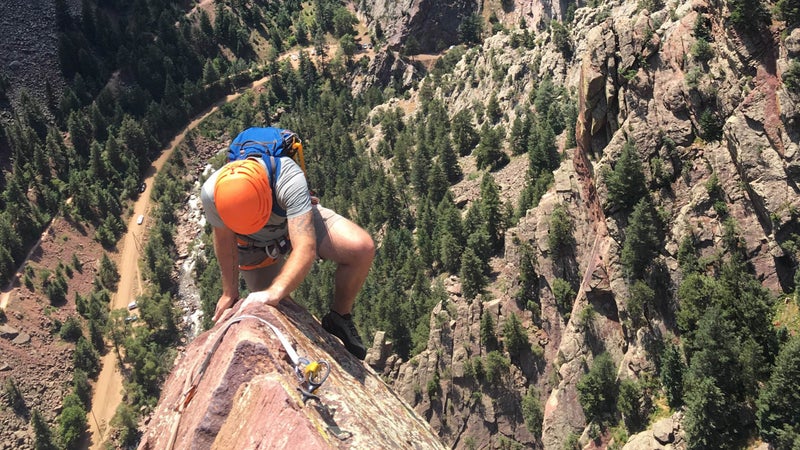
“,” as it’s often, is just a 20-minute drive south of Boulder. The canyon features 700-foot-tall sandstone walls and the area offers several excellent beginner climbs, as well as routes for the more experienced.
Lovell and I initially tried tackling , a classic moderate route that’s only a 15-minute walk from the road. But it was so crowded we started instead on and linked it to Zot about three pitches in. The climbing was an interesting mix of crack and face, finishing on a scenic ridge.
Hallett Peak: The Great Dihedral
�پ��ڴڳ����ܱ��ٲ�:��5.7+
Length: Seven pitches
Time: One day
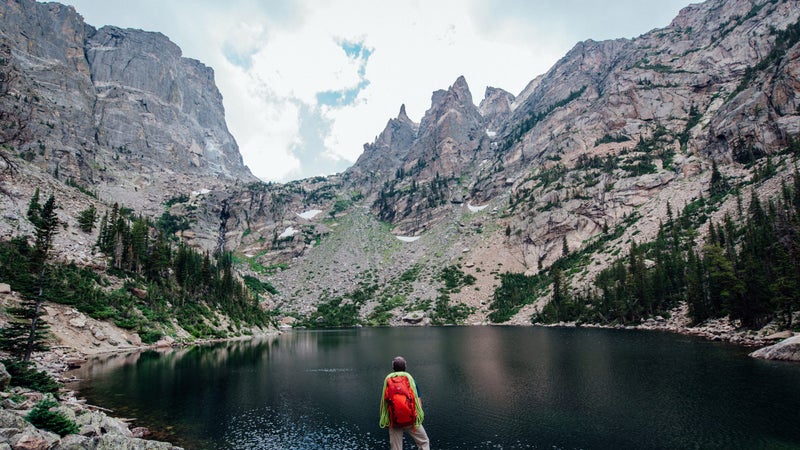
Rocky Mountain National Park, where Hallett Peak is located, is the third most-visited national park in the United States. That’s in part because it’s so easy to get to—just a one-hour drive from Boulder. If the season's right, visitors are treated to views of courting elk, granite peaks, and turquoise lakes. Trail Ridge Road reaches 12,800 feet, making it the highest paved road in any national park.
The park is also home to countless rock, snow, and ice climbs, which, when combined with the easy access, make it a true playground for the alpinist. The 1,000-foot granite wall of Hallet Peak towers over the popular Bear Lake Trailhead parking lot, a mere 2.5 hours from my front door in Lyons, a small town 20 minutes north of Boulder.
Lovell and I climbed , a route undoubtedly named for its money pitch. That pitch extends for an entire rope length, about halfway up the climb, which follows a long corner system on the peak’s north face. The climbing varied from scrambly to jammy, with good exposure and great views. The route also features a bail-out point with a walk-off descent just before that famous pitch, which can be useful if you encounter one of the area’s common flash thunderstorms.
Get an early start on the climb, then swing by for a late lunch in Lyons on your way out of town.
Want to go deeper? course can show you these climbs and more while helping develop your skills. There are also several guidebooks for area climbs: , , and are great titles to start collecting information.

